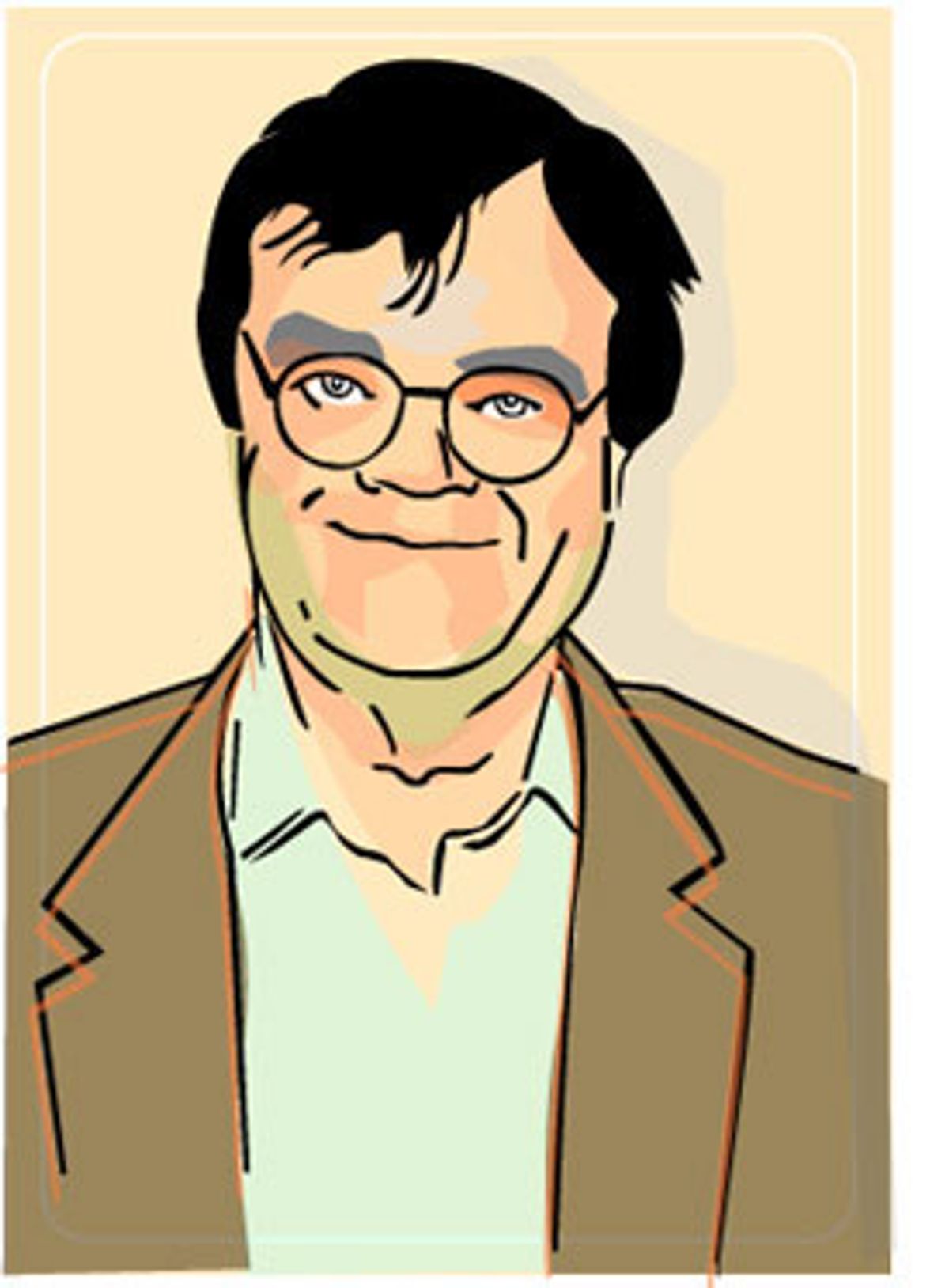OK, let me say this once and get it off my chest and never mention it again. I have had it with writers who talk about how painful and harrowing and exhausting and almost impossible it is for them to put words on paper and how they pace a hole in the carpet, anguish writ large on their marshmallow faces, and feel lucky to have written an entire sentence or two by the end of the day.
It's the purest form of arrogance: Lest you don't notice what a brilliant artist I am, let me tell you how I agonize over my work. To which I say: Get a job. Try teaching eighth-grade English, five classes a day, 35 kids in a class, from September to June, and then tell us about suffering.
The fact of the matter is that the people who struggle most with writing are drunks. They get hammered at night and in the morning their heads are full of pain and adverbs. Writing is hard for them, but so would golf be, or planting alfalfa, or assembling parts in a factory.
The biggest whiners are the writers who get prizes and fellowships for writing stuff that's painful to read, and so they accumulate long résumés and few readers and wind up teaching in universities where they inflict their gloomy pretensions on the young. Writers who write for a living don't complain about the difficulty of it. It does nothing for the reader to know you went through 14 drafts of a book, so why mention it?
The truth, young people, is that writing is no more difficult than building a house, and the only good reason to complain is to discourage younger and more talented writers from climbing on the gravy train and pushing you off.
Young people are pessimistic enough these days without their elders complaining about things. Shut up. Life is pretty good when you grow up. You own your own car, you go where you like, and you sing along with the radio or talk to yourself or chat on your cellphone. You pull into the drive-up window and order the Oreo Blizzard. What's not to like?
One day you get lucky and find someone who's willing to pay you to do something you do well or can fake, and on this you can build a life. You marry someone loving and sensible who makes you laugh, and you beget children, and go through the poop and puke and snot years, and somewhere around the age of 5 or 6, your kids start to fascinate you. There is nobody like them, except perhaps you. You would run into a burning building for them, and at the same time they're the cause of exquisite worry and consternation. At the age of 12, they look at you as if to say, Your replacement has arrived.
Meanwhile, you march forward and sample the pleasures of life. You read history and learn to grill fish in beer batter and find comfortable shoes. You go to Rome. You go to Montana. You come to love baseball and old jazz and the art of conversation. You admit to yourself that you don't care for Walt Whitman or Proust or Henry James, and you forgive yourself for that and pick up Elmore Leonard and J.F. Powers. You discover the pleasure of discarding stuff. You find a hairstyle that suits you. You go back to Montana.
Eventually you cross the line into your 40s, the mortgage years. And the 50s, when you stand weeping at graduations and weddings, and then, in the blink of an eye, come your 60s, and now you're on Easy Street. People who used to ignore you now treat you with reverence. There is great silence when you natter and pontificate, and people ask the secret of your success. You have become eminent. Inside you feel mischievous and jokey, but other people see you as a laureate, so you learn to harrumph.
Clarity is hard. Honesty can be hard. Comedy is always chancy, but then so is profundity. Sometimes one winds up as the other. Illness is, of course, to be avoided, and also megamalls and meetings involving vice presidents. But writing is not painful, no more so than a round of golf. Nobody was harmed in the course of writing this column. That is all I have to say at this time. Thank you.
- - - - - - - - - - - -
(Garrison Keillor's "A Prairie Home Companion" can be heard Saturday nights on public radio stations across the country.)
© 2006 by Garrison Keillor. All rights reserved. Distributed by Tribune Media Services Inc.

Shares